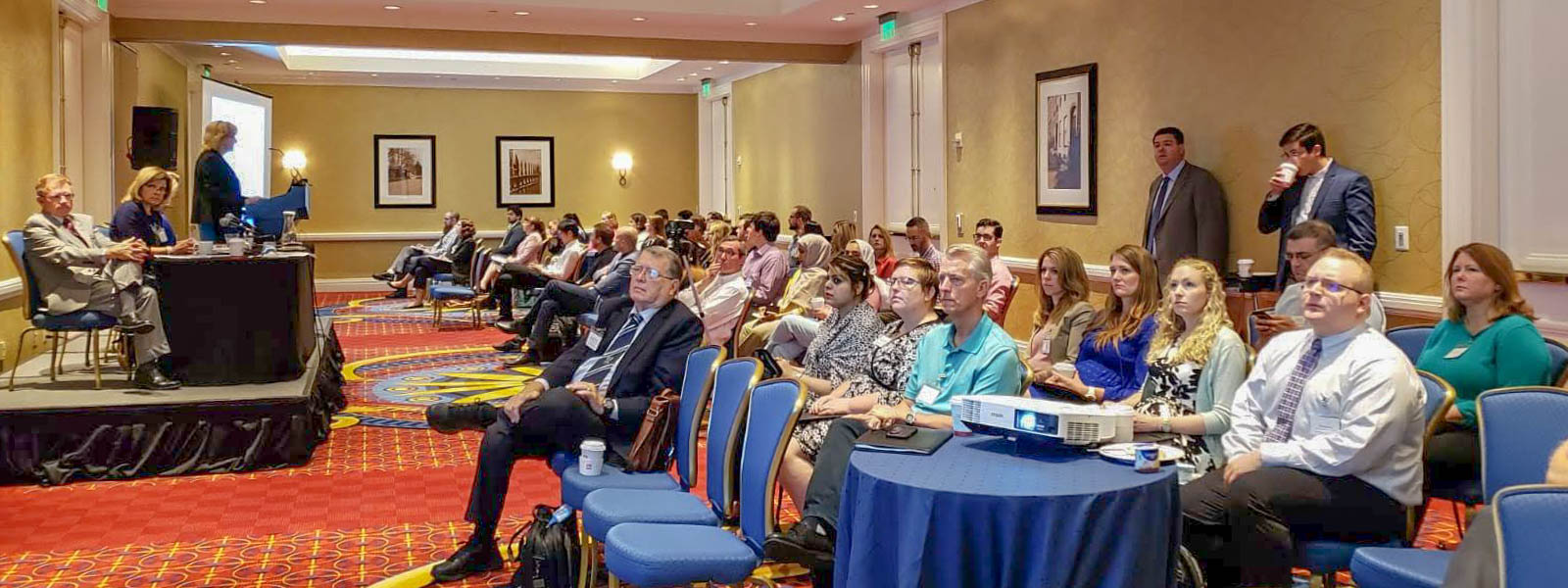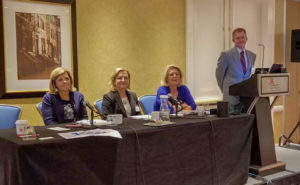
On July 22, the Center for Nuclear Security Science and Policy Initiatives (NSSPI) led a workshop on the policy and technical fundamentals of international nuclear safeguards that took place in conjunction with the 59th Annual Meeting of the Institute for Nuclear Materials Management (INMM) in Baltimore, Maryland. The workshop consisted of a face-to-face session at the INMM meeting and an online certificate course, which participants could complete either before or after the meeting. The in-person portion of the workshop featured presentations by a panel of international safeguards experts and professionals with current or recent experience in policy, technical implementation, and/or inspections.

According to NSSPI Director, Dr. Sunil Chirayath, who moderated the panel, this is the first such professional development workshop to take place during the INMM Annual Meeting in 20 years, and it “speaks directly to the mission of the organization to offer such opportunities to its members.” Chirayath is also the president of the U.S. Southwest Professional Chapter of the INMM and the faculty sponsor of the Texas A&M University Student Chapter of the INMM.
The four-hour panel session began with a presentation by Therese Renis, the director of the Division of Concepts and Planning in the Department of Safeguards at the International Atomic Energy Agency (IAEA). Renis’s talk gave participants an overview of the IAEA’s safeguards implementation policy. Michael Whitaker, manager of the International Safeguards Group in the Nuclear Security and Isotope Technology Division at the Oak Ridge National Laboratory, then gave a presentation on IAEA inspections at U.S. nuclear weapons production facilities and how the facility prepares for and hosts IAEA safeguards inspections. This was followed by an overview of the technical aspects of international safeguards by Shirley Johnson, a private consultant and former IAEA safeguards inspector. Jill Cooley, who is a senior technical advisor for the Global Security and Strategic Partnerships Program at the Y-12 National Security Complex with 20 years of experience at the IAEA, spoke about the States’ System of Accounting for and Control of Nuclear Material, and Laura Rockwood, the executive director of the Vienna Center for Disarmament and Nonproliferation, addressed the role of the Additional Protocol from a State’s perspective. Finally, Dunbar Lockwood, who is a senior advisor for safeguards and safeguards policy in the Office of International Nuclear Safeguards at the National Nuclear Security Administration (NNSA), gave a presentation on the challenges of implementing the State-level Concept, with emphasis of the issues related to State-specific factors, acquisition path analysis, and customized State-level approaches.
After the presentations, participants were given the opportunity to interact with the experts in an informal question-and-answer session.
There were 67 registered participants at the workshop. At the time of the meeting, 17 individuals, including INMM President Corey Hinderstein, had completed the online coursework and were awarded their certificates during the workshop. An additional 8 participants have completed the online portion since. This coursework represented approximately 25 hours of training in nuclear safeguards and covered: an introduction to nuclear safeguards and security, an overview of the nuclear fuel cycle, an introduction to statistics and applied statistics for safeguards, nuclear material accountancy, containment and surveillance, spent nuclear fuel safeguards, and uranium enrichment safeguards. Participants have the option of completing the online course through the end of September to earn a certificate and continuing education credits.
“Participants reported to me that the course work was fairly rigorous,” INMM Vice President Cary E. Crawford remarked at the opening plenary session of the INMM Annual Meeting. “The Institute very much appreciates the effort from Texas A&M because it not only brought an educational element and academic credit, but it also was able to continue promoting our next generation education.”
The workshop was jointly conducted by the U.S. Southwest Professional Chapter, the International Safeguards Technical Division of the INMM, and the Texas A&M University and University of New Mexico Student Chapters of the INMM.